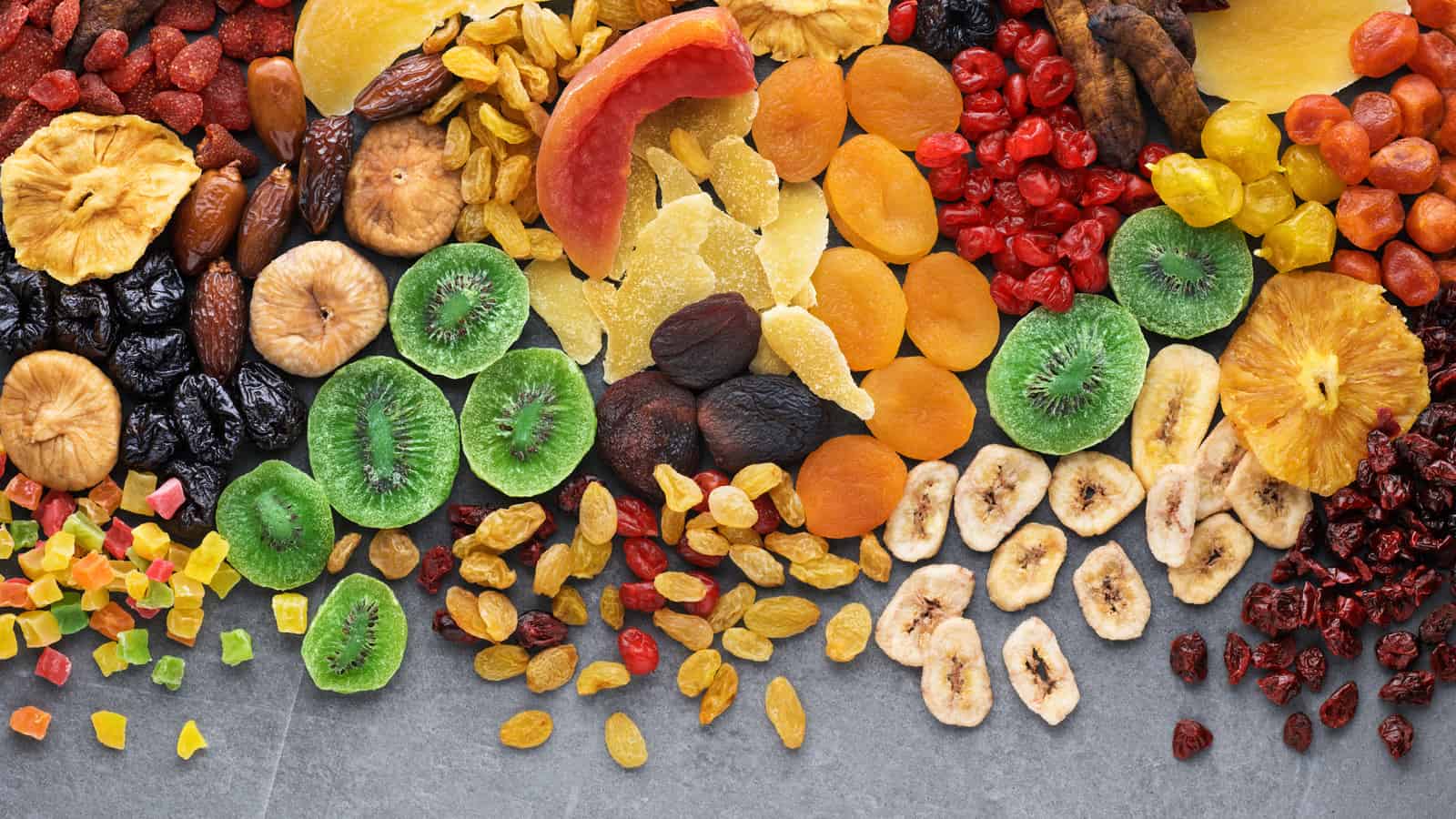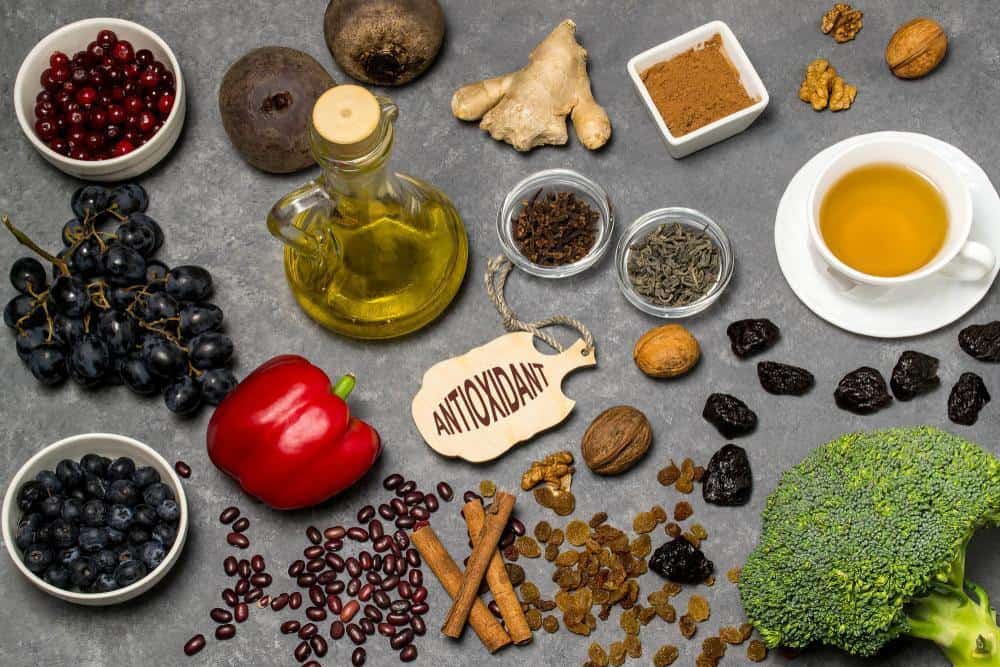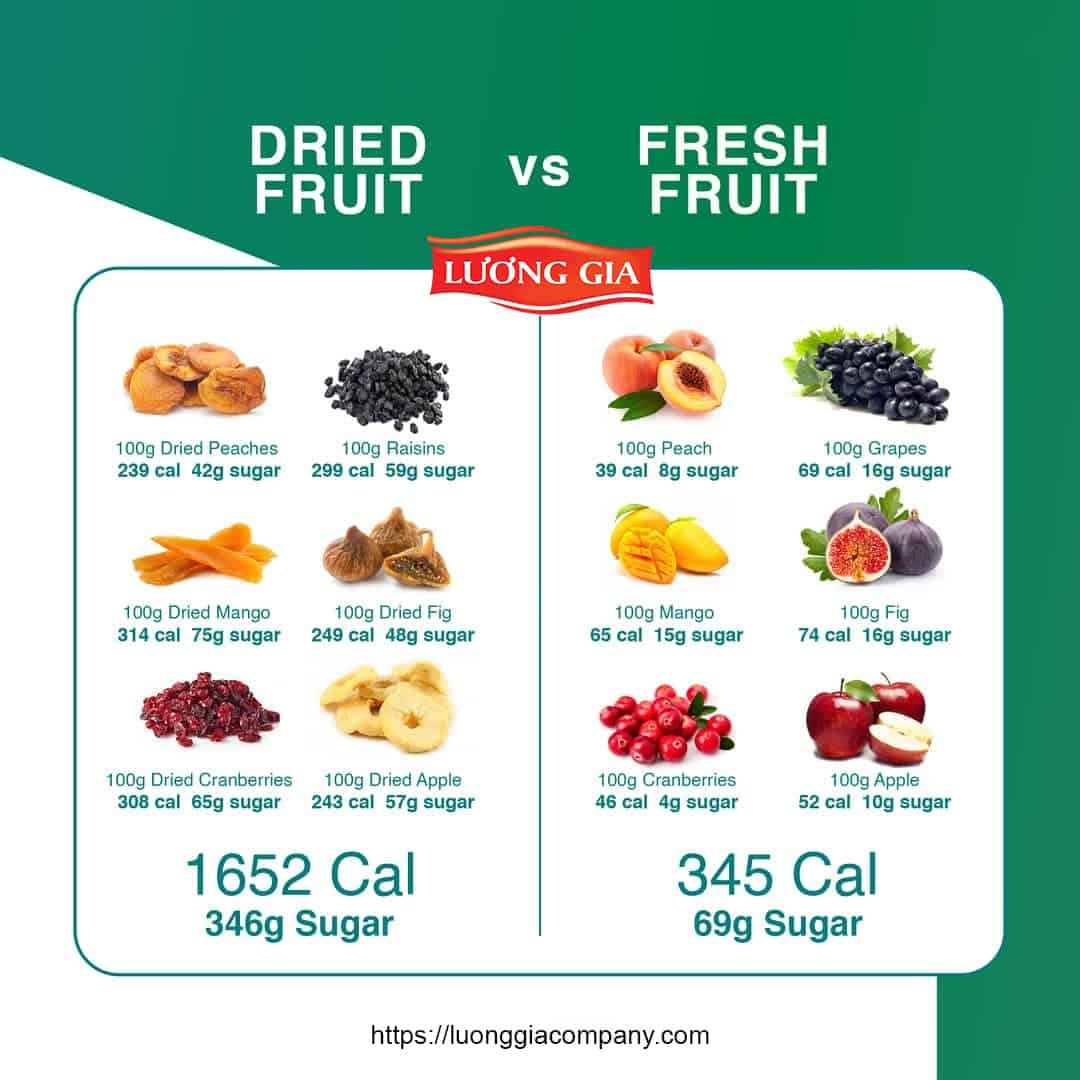Dried fruit has been a favorite snack for centuries, offering a unique combination of natural sweetness and concentrated nutrition. Whether enjoyed on their own or used as a versatile ingredient in various dishes, they have earned their place as a pantry staple. In this article, we explore the world of dried fruit, from its preparation and types to its nutritional benefits and culinary uses.
What are dried fruits?
Dried fruit , a popular and convenient snack, is essentially fruit that has undergone a dehydration process to remove moisture. This process involves exposing the fruit to heat or air, which preserves its natural sugars, flavors and nutrients. The result is a sweet and nutritious snack that can be enjoyed on its own or paired with a variety of dishes.

What is Dried Fruit
Dried fruits come in a variety of options, including raisins, apricots, dates, figs, etc. Each type of dried fruit has a unique flavor and nutritional profile, making them a great addition to your diet. Flexibility for a healthy diet.
The dehydration process involves removing up to 80-90% of the water content in the fruit, which enhances the natural sugars in the fruit. This concentration of sugar gives dried fruit its characteristic sweetness. That also means dried fruit is packed with energy, making it a great source of quick energy for active people or those who need a natural energy boost.
Besides convenience and natural sweetness, dried fruit is also appreciated for its long shelf life. They can be stored for long periods without refrigeration, making them ideal for snacking on the go, hiking or as a pantry staple.
In culinary applications, dried fruit is often used in baking, salads, salads, and even savory dishes to add sweetness and texture. The versatility of dried fruit makes it a favorite ingredient in both sweet and savory recipes, providing a burst of flavor and nutrition.
Overall, dried fruit is a healthy snack that delivers the delicious taste of fresh fruit in a convenient, portable form. Whether you enjoy them as a quick source of energy or use them to enhance your culinary creativity, dried fruits are a fun and nutritious addition to any diet. any.
Dried fruits contain many micronutrients, fiber and antioxidants
Dried fruits are not only delicious but also extremely nutritious. It delivers a significant boost in micronutrients, fiber and antioxidants.

Dried fruits antioxidants
One of the main benefits of dried fruit is its concentration of essential vitamins and minerals. For example, raisins are an excellent source of potassium, iron and vitamin B6. Apricots provide significant amounts of vitamin A and potassium, while dates provide significant amounts of potassium and magnesium. These nutrients play important roles in various body functions, such as maintaining proper nerve function, supporting healthy blood pressure, and promoting good vision.
Furthermore, dried fruits are rich in fiber. Fiber is essential for digestive health because it helps regulate bowel movements and prevent constipation. It also contributes to feelings of fullness, which can aid in weight management and appetite control. Additionally, fiber helps stabilize blood sugar levels, making dried fruit a suitable choice for people with diabetes.
Antioxidants are another outstanding feature of dried fruits. These compounds help protect the body’s cells from damage caused by free radicals, which can contribute to various chronic diseases, including heart disease and cancer. Antioxidants in dried fruit, such as flavonoids and polyphenols, are associated with reducing oxidative stress and inflammation, which are key factors in disease prevention.
In short, dried fruit is a rich source of nutrients, providing essential vitamins and minerals, fiber for digestive health, and plenty of antioxidants for overall health. Incorporating dried fruit into your diet can be a delicious and convenient way to increase your nutrient intake and support your health.
Health effects of dried fruit
Consuming dried fruit can have many positive health effects due to its nutritional density and natural compounds. Let’s dive into some notable benefits:
Raisins may help reduce the risk of certain diseases
Raisins, a type of dried grape, have attracted attention for their potential health benefits. These bite-sized snacks are rich in antioxidants, especially resveratrol, which has been linked to improved heart health. Studies show that regular consumption of raisins may contribute to reducing oxidative stress, lowering blood pressure and reducing the risk of heart disease. In addition, the fiber in raisins also helps promote healthy digestion and aids in weight control.
Prunes are considered a natural laxative and can help fight illness
Prunes, which are dried plums, are renowned for their natural laxative properties. They are a rich source of dietary fiber, both soluble and insoluble, making them a potent tool against constipation. The high fiber content in prunes helps soften stool and promote regular bowel movements. Furthermore, prunes contain antioxidants like beta-carotene and quercetin, which can aid in reducing inflammation and oxidative stress in the body. These antioxidant properties may contribute to disease prevention and overall well-being.
Dates Can Benefit Pregnancy and Help Prevent Certain Diseases
Dates are a nutritional powerhouse, particularly for expectant mothers. They are an abundant source of essential nutrients, including folate, iron, and potassium. Folate is crucial for fetal development, as it helps prevent birth defects of the brain and spine. Iron supports the increased blood volume during pregnancy and prevents anemia, while potassium aids in maintaining healthy blood pressure levels. Moreover, dates contain antioxidants like flavonoids and carotenoids, which have been linked to reduced risk factors for chronic diseases. Incorporating dates into your diet during pregnancy can be a delicious and nutritious way to support both maternal and fetal health.
Dried Fruit Is High in Natural Sugar and Calories
While dried fruit offers a plethora of health benefits, it’s important to be mindful of its natural sugar and calorie content. During the dehydration process, the water in the fruit is removed, leaving behind concentrated sugars. As a result, dried fruit can be significantly higher in natural sugars than its fresh counterparts.

Dried Fruit Is High in Natural Sugar and Calories
For individuals who need to monitor their sugar intake, such as those with diabetes, it’s crucial to consume dried fruit in moderation and be aware of its impact on blood sugar levels. Additionally, the energy density of dried fruit means that it provides a substantial number of calories for a relatively small serving size. Therefore, portion control is essential for those who are watching their calorie intake or trying to manage their weight.
Dried Fruit Can Also Contain Sulfites and Can Be Contaminated with Fungi and Toxins
While dried fruit offers numerous health benefits, it’s important to be aware of potential issues related to its production and storage. Two key concerns are the presence of sulfites and the risk of contamination with fungi and toxins.
Sulfites are often used as preservatives in dried fruit to extend its shelf life and maintain its color and texture. However, some people may be sensitive to sulfites, experiencing symptoms such as asthma, allergies or gastrointestinal discomfort. If you have a known sensitivity to sulfites, it is essential to check product labels for sulfite content or choose dried fruits that do not contain sulfites.
Improper storage conditions can also lead to problems with dried fruit. When not stored in a cool, dry, and airtight environment, dried fruit can be susceptible to fungal growth. Mushrooms can produce mycotoxins, which are harmful compounds that can pose a health risk when consumed. To minimize the risk of fungal infection, buy them from reputable sources and store them properly in airtight containers.
In short, dried fruit is a fun and nutritious snack that offers many health benefits, including essential vitamins and minerals, fiber and antioxidants. However, people should be mindful of their natural sugar and calorie content and control their exercise portion when necessary. Additionally, for those sensitive to sulfites, sulfite-free options should be chosen. Proper storage and sourcing from reputable suppliers is essential to minimize the risk of fungal infections and toxin exposure. With these considerations in mind, dried fruit can be a delicious and healthy addition to your diet.
